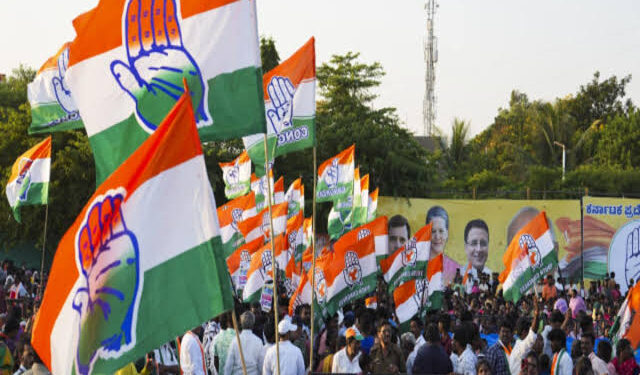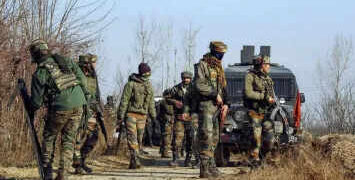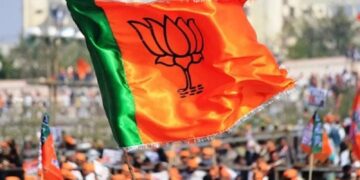Changing Voting Patterns: The results of Maharashtra and Jharkhand assembly elections and UP by-elections were eagerly awaited by all those who are interested in the current politics of India. The wait is over and in a way, the results like anticlimax have arrived. The mathematics of many political pundits, analysts and thinkers once again proved something else.
In fact, a trend is visible from the last Lok Sabha elections and then the Haryana elections itself, which shows that it is no longer easy to predict the voters’ decision because the voters’ decisions have become more sensible than before, which the political parties and leaders. Are also understanding.
Now let us consider the elections of Jharkhand only. In this state, Chief Minister Hemant Soren was not only facing anti-incumbency wave, but was also facing allegations of corruption. Not only this, the ED had also arrested the Chief Minister earlier this year. BJP had raised the issue of Bangladeshi infiltrators very loudly in the elections. The new slogan of Katenge-Batenge was circulated here also. It seemed that Hemant Soren’s boat was very difficult to sail. But the results were different. Neither corruption nor the Bangladeshi issue appealed to the voters. Only Soren should go.
The UP by-election was considered a contest between the BJP, especially Chief Minister Yogi Adityanath and the Samajwadi Party i.e. Akhilesh Yadav. The by-elections had become more important in the light of the performance of the Samajwadi Party in the Lok Sabha elections. Campaigning and candidate selection were the subject of much discussion. A wide selection of candidates was fielded. The slogan of ‘Katenge Batenge, Saath Rahenge’ was raised loudly. It was said to be a close fight. But the results surprised. The voters gave their message that what the parties think does not happen at the ground level.
Now look at Kundarki seat. There is a large number of Muslims here. It seemed that the outcome would be decided by outright Muslim voting. But BJP’s Ramveer Singh and SP’s Mohammad Rizwan, who emerged victorious, had to face a humiliating defeat. But why did this happen? Ramveer Singh’s party may have been trying to mobilize Hindus by raising the slogan of ‘Katenge-Batenge’. But Ramveer Singh himself was speaking contrary to this slogan. They were saying that they will neither be divided nor divided but will remain together. He was wearing a Muslim cap and calling himself the leader of all Hindus and Muslims. The result is in front.
Another result is from Sisamau seat. Samajwadi Party’s Naseem Solanki won here. Naseem’s husband Irfan is in jail in various cases. Apart from this, despite all the speculations of polarization in the region, the public voted in favor of Naseem who had performed Rudrabhishek in the Ram temple of Ayodhya. Even after the victory, Naseem said that she will again go to the temple, mosque and gurudwara.
Where is the Hindu-Muslim polarization on these seats? If they are divided then it becomes a breeze here too.
Maharashtra was a very important election. Six different types of parties here. Loud announcement of ‘Katenge-Batenge’. Strong politics of Maratha and other OBCs. It was definitely a matter of a thorn. But the result was completely different. The voters surprisingly made many things clear. Here the voters made it clear that only Bal Thackeray’s solid Hindutva will prevail. Uddhav Thackeray was told that only ideology will work, mere existence of Thackeray family is not enough.
In the case of Hindutva, it was also decided that BJP will be its flag bearer and Shiv Sena will have a supporting position. The voters also decided the stature of Sharad Pawar and told that he is no longer a strongman. It was also decided that the real NCP is that of Ajit Pawar. The manner in which all the Muslim candidates were defeated also gave an indication to the people of UP and Jharkhand that Muslim mobilization is now just a matter of words, now the voters decide after looking at the issues and reality.
It was also decided that ‘anti-incumbency’ i.e. anti-incumbency trend has no importance anymore. The one who will work and benefit us will rule. An important factor was the women vote bank in Jharkhand and Maharashtra which has been strengthened through numerous cash schemes. The impact of these schemes is clearly visible from the increase in the voting percentage of women in these states.
This time the voting percentage of women increased by about 6 percent compared to the 2019 elections in Maharashtra. Incidentally, after the NDA’s poor performance in Maharashtra in this year’s Lok Sabha elections, the Eknath Shinde government launched the ‘Girl Sister Scheme’, under which Rs 1,500 was given to women with annual family income less than Rs 2.5 lakh.
Look at Jharkhand. The Hemant Soren government launched the ‘Mukhyamantri Maiya Samman Yojana’ in August this year, under which all women in the age group of 18 to 50 years get Rs 1,000 per month. Soren has also promised to increase it to Rs 2,500 per month from December 2024. Now look at the election results. During voting, the number of women voters was more than men in 85 percent of the seats in the state. Voting of women was more than that of men in 68 out of 81 seats. In 2019, the voting percentage of women was 67 percent, which increased to more than 70 percent this time.
Let’s go backwards through the year. After 15 years of rule in Madhya Pradesh, Shivraj Singh Chouhan government started ‘Mukhyamantri Laadli Behna Yojana’ in the state in January 2023. Under which women were given Rs 1,000 every month. Later it was increased to Rs 1,250. In the subsequent assembly elections, the number of women voters increased by more than two percent and BJP registered a strong victory in the elections.
But exceptions are everywhere. Rajasthan proved to be an exception in this rupee scheme. The Ashok Gehlot government here had also started many schemes for women, which included distribution of smartphones, free sanitary napkins and cheap gas cylinders. But cash was not given in these. Gehlot’s schemes became popular. But still Congress lost the elections.
The credit for starting the distribution of cash through schemes for women goes to the Y S Jagan Mohan Reddy government in Andhra Pradesh. In 2020, Jagan’s government launched the ‘Jaganna Amma Vodi Scheme’ under which mothers were given Rs 15,000 per year to send their children to school. Now Chandrababu Naidu’s government has kept this scheme running by changing its name.
In 2021, West Bengal CM Mamata Banerjee launched ‘Lakshmi Bhandar Yojana’ in which poor women are given Rs 1,000 every month. In Karnataka, Congress launched ‘Griha Lakshmi Yojana’ after coming to power in August last year. On the other hand, Stalin’s DMK government in Tamil Nadu had started the ‘Kalaignar Magalir Urimai Thittam’ scheme for women in September last year, under which Rs 1,000 is given every month to one crore women. In December the same year, the Congress government in Telangana launched ‘Mahalakshmi Yojana’, under which women were given free bus travel and Rs 2,500 in cash every month.
The BJP government in Chhattisgarh announced ‘Mahtari Vandan Yojana’ in March this year, in which Rs 1000 is given to married women. The BJP government in Odisha announced ‘Subhadra Yojana’ for women soon after coming to power. In this, poor women will be given Rs 50,000 in five years.
Assembly elections are going to be held in Delhi next year. The Aam Aadmi Party government here has already announced ‘Mukhyamantri Mahila Samman Yojana’, under which women above 18 years of age will be given Rs 1000 every month.
So what is the mood of the voters? No one can say anything. But it is certain that the mood is moving away from its earlier pattern. This can also be called generational change. There will be continuous change i.e. evolution in this. This is a good sign for electoral democracy. This is an evolving voter, in which you and I too are included. This is our strength. What form will this power of ours take in the end? This needs to be seen. Because whatever experiments have been done in democracy till now have not lasted. They want development. Even if it is appeasement. Even if it is eternal. Be it herdsmen. Be it extreme nationalism. Even if there is mobilization of castes. Whenever they ran in some election or the other in some corner of the country, they also lost their popularity. But now that we have moved ahead after seventy-five years of independence. Then it should be expected that democracy, which till yesterday has been running on issues, leaders, mobs, casteism, system and appeasement etc., will be run by the people.
(The author is a journalist.)






